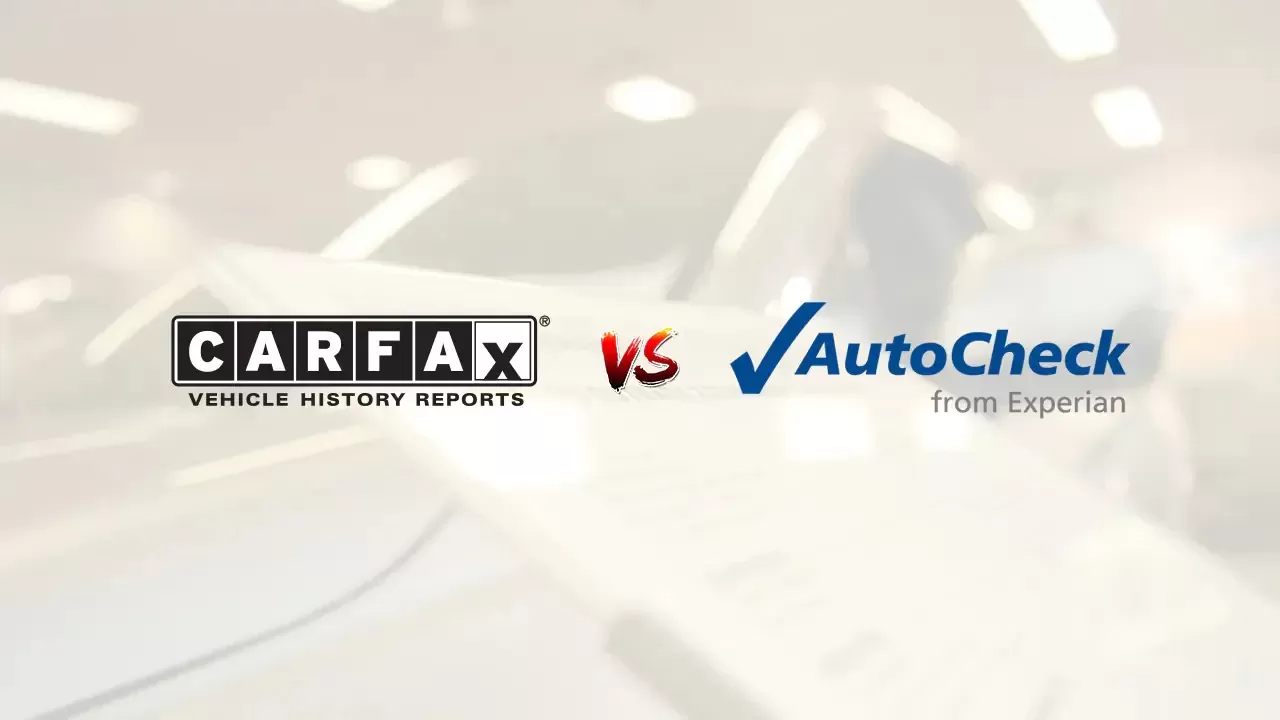
CARFAX® vs AutoCheck® Comparison (2025)
CARFAX vs AutoCheck: The Best Vehicle History Report for Wholesale Buyers in 2025
Why Vehicle History Reports Matter to Wholesale Dealers
In today’s highly competitive wholesale market, buying the right vehicle at the right price can make or break your profit margin. Dealers who source vehicles at auction or through trade-ins rely on Vehicle History Reports (VHRs) to minimize risk, identify potential issues, and make confident purchase decisions that drive profitability.
If you're in the business of acquiring vehicles for resale, choosing the right VHR provider—CARFAX or AutoCheck—can give you a serious edge.
What Do Dealers Need from a VHR?
When buying vehicles for wholesale, you need a VHR that helps you:
- Flag title issues and damage history
- Confirm accurate mileage and ownership
- Identify high-risk vehicles early
- Save time at auction with quick insights
- Spot value opportunities others miss
The goal isn’t just to get more data—it’s to use that data to maximize margin on every purchase.
CARFAX vs AutoCheck: Which Delivers More for Wholesale Buyers?
Both providers offer solid reports—but they serve different needs. Here’s how they stack up for professionals in the wholesale space:
AutoCheck: The Wholesale Powerhouse
- Exclusive Auction Data – Get insights from Manheim, Adesa, and more—ideal for sourcing at scale.
- AutoCheck Score – Quickly evaluate a vehicle’s condition and risk factor with a dealer-friendly scoring system.
- Affordable at Volume – Lower costs make it easy to run high volumes of reports when working auctions.
- Integrated with Auction Platforms – A go-to tool for serious wholesale buyers.
CARFAX: Strong on Detail, Less Efficient for Wholesale
- Detailed Service Records – Excellent for post-sale reconditioning decisions or consumer resale.
- High Consumer Recognition – A must-have if you're preparing a vehicle for retail.
- Higher Cost – Not as budget-friendly for dealers running reports on hundreds of vehicles.
- Buyback Guarantee – Added peace of mind for retail-oriented operations.
The Best Strategy for Wholesale Dealers
If your goal is buying smarter at wholesale, AutoCheck delivers the best ROI. With auction-integrated data, scoring tools, and volume pricing, it's designed to help dealers appraise quickly, act decisively, and protect their margins.
CARFAX is best kept for customer-facing activities—like building buyer confidence or marketing retail units.
Quick Dealer-Focused Comparison
| Feature | CARFAX | AutoCheck |
|---|---|---|
| Wholesale Auction Data | General | ✅ Manheim, Adesa Exclusive |
| Vehicle Risk Scoring | ❌ | ✅ AutoCheck Score |
| Service Records | ✅ Detailed | ❌ Basic or None |
| Cost for Volume Use | $$$$ | $$ |
| Best Use Case | Retail Prep | Wholesale Sourcing |
| Auction Integration | Limited | ✅ Strong |
| Buyback Guarantee | ✅ Yes | ✅ Yes |
Final Recommendation for 2025
For wholesale dealers focused on profit-first acquisitions, AutoCheck offers the tools you need to win. It’s built for volume, speed, and precision—giving you the power to make informed buying decisions at scale.
Use AutoCheck to buy smarter. Save CARFAX for retail prep when the time comes to sell.
In wholesale, margins are tight. Your VHR should work as hard as you do.
Laser Appraiser provides free Car Dealer account integration to CARFAX and AutoCheck Vehicle History Reports for Automotive Professionals (Sorry Shoppers!). This helps streamline appraisals, reduce risk, and make confident buying and trade-in decisions. Built specifically for Automotive Professionals, Laser Appraiser is the industry-standard tool for confident, data-driven used car buying and selling decisions. Discover what the Pros already know with Laser Appraiser and the original VIN Scanner!


